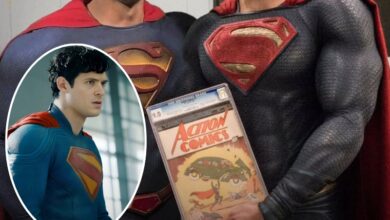How The Libertine Proves Even Johnny Depp Couldn’t Escape Hollywood’s Politics
OPINION: This article may contain commentary which reflects the author's opinion.
Johnny Depp soared to international stardom with the 2003 blockbuster Pirates of the Caribbean: The Curse of the Black Pearl, becoming a beloved household name. Yet, amid his commercial triumphs lies a lesser-known chapter: The Libertine (2005), one of Depp’s most daring and complex performances, which was quietly buried by its own distributor before it ever reached a wide audience.
Directed by Laurence Dunmore, The Libertine cast Depp as John Wilmot, the second Earl of Rochester—a scandalous 17th-century English poet and rogue known for his wild excesses and dark genius. Depp had pursued this role for nearly a decade, drawn to the character’s moral complexity and tortured soul. With a supporting cast including John Malkovich and Rosamund Pike, and a script rich in provocative, challenging material, the film promised to be a bold departure from Depp’s mainstream hits.
Yet when it came time to release the film, The Weinstein Company, led by Harvey Weinstein, opted for an extremely limited theatrical run in the United States. This choice effectively doomed the movie’s commercial prospects, turning what could have been a breakthrough art-house success into a forgotten footnote. Depp later expressed his frustration to The Guardian in 2011: “Harvey killed a great film,” he said, condemning the studio’s deliberate shelving of the project.
Industry insiders suggest the film’s demise wasn’t about quality but about timing and branding. Coming off his family-friendly pirate persona, Depp had suddenly become a global icon to children and parents. A movie steeped in explicit sexual themes, decadence, and a deeply flawed antihero clashed sharply with the sanitized image that Disney and its affiliates wanted to maintain. Depp himself quipped that he wouldn’t allow his children to watch The Libertine until they were “like, 30… if then,” underscoring how far it strayed from his blockbuster roles.
The Libertine is not alone in facing Hollywood’s politics. Depp’s later film Minamata (2020) also suffered release delays amid his personal controversies. But while Minamata’s struggles were tied to Depp’s public image, The Libertine stands out as a case of artistic sabotage driven by studio branding and control rather than scandal.
Today, nearly two decades later, The Libertine is experiencing a quiet renaissance. Retrospectives like Far Out Magazine’s 2025 feature have revisited the film, casting new light on how Hollywood sidelined one of Depp’s most ambitious and nuanced performances. Film historians and fans alike are reconsidering it—not as an odd detour, but as a casualty of commercial calculation.
In a career marked by reinvention and resilience, The Libertine remains a haunting “what if.” It serves as a powerful reminder that even the brightest stars, no matter their fame, can have their most profound work dimmed by the invisible forces of Hollywood politics.



